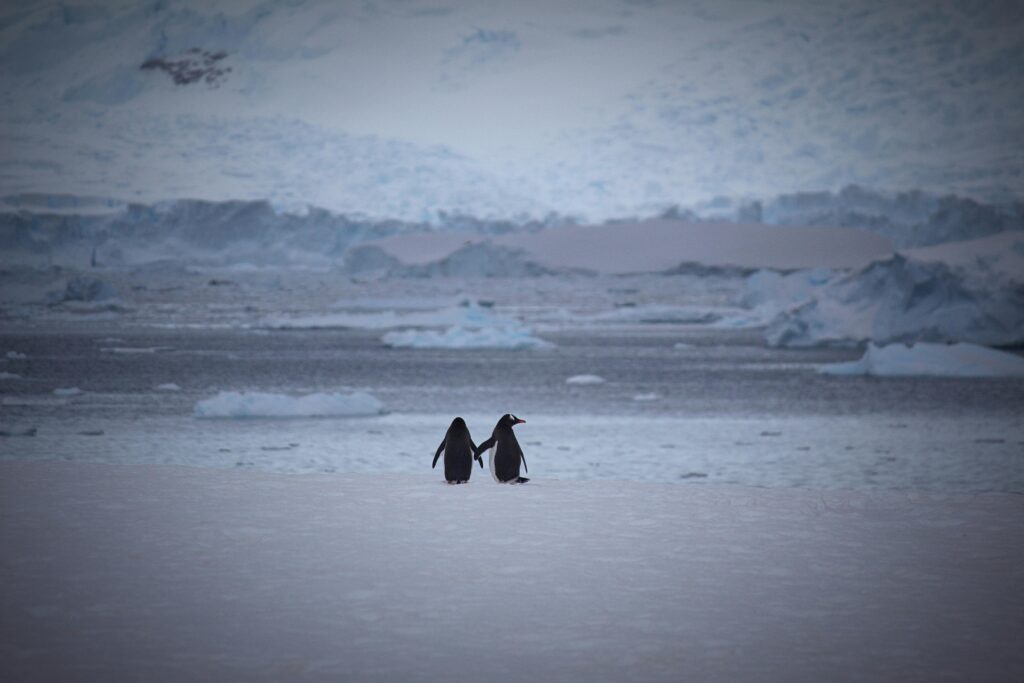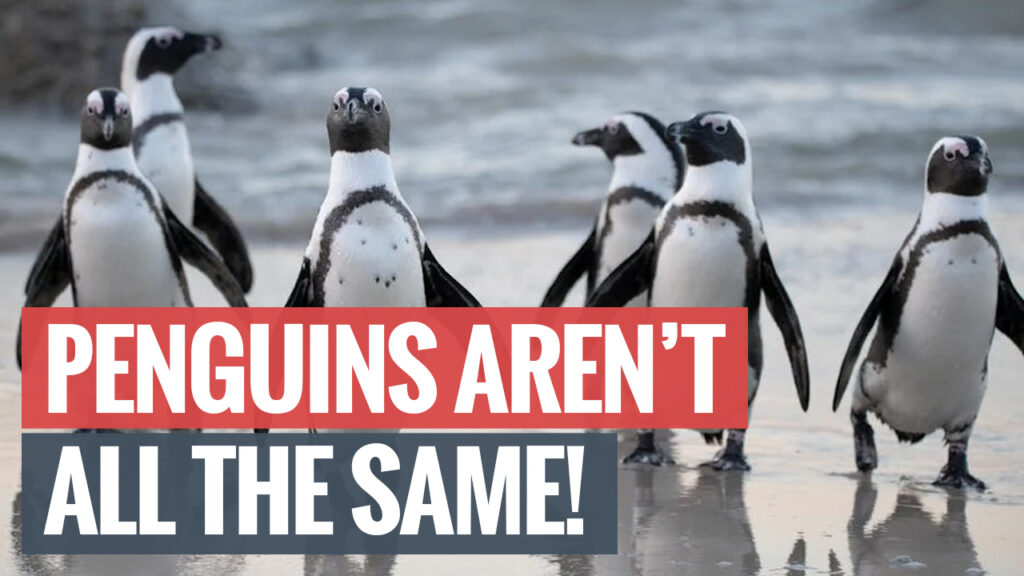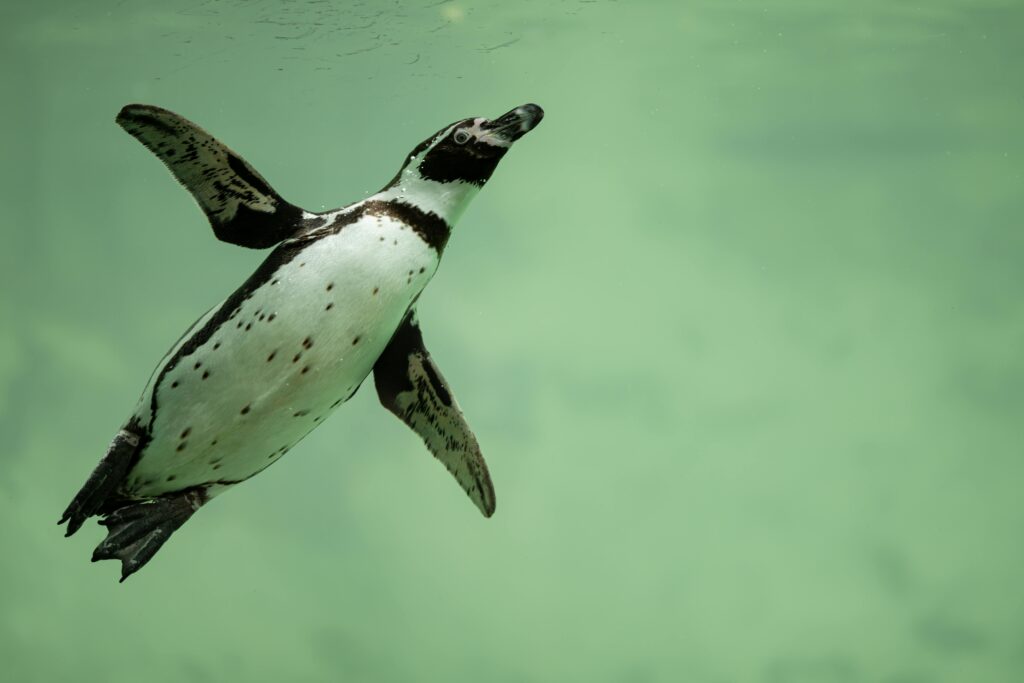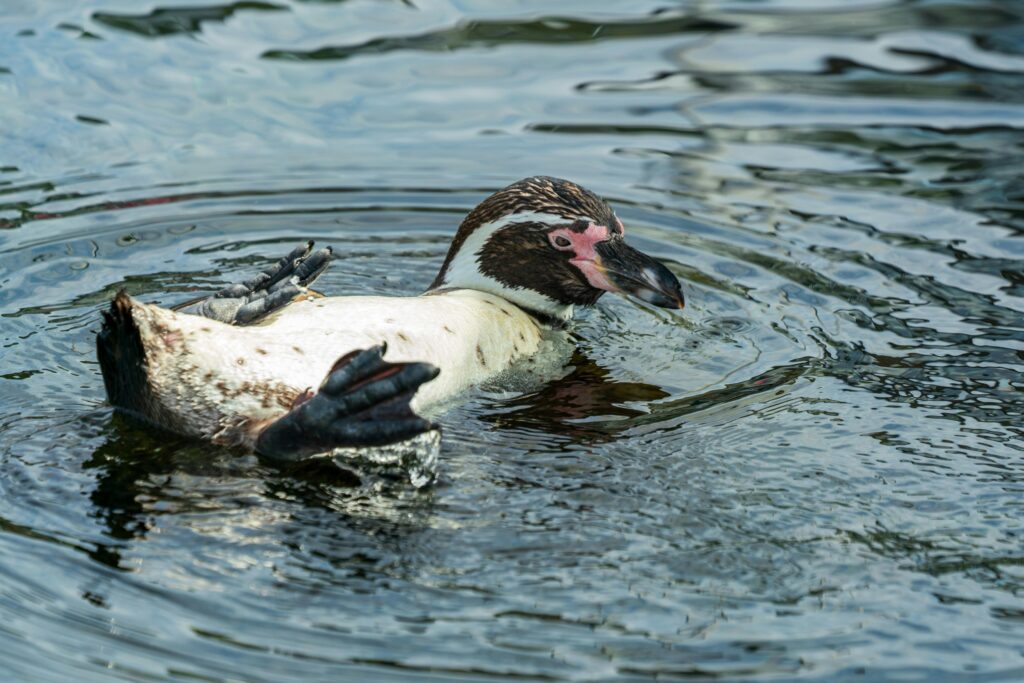There’s a creature waddling around on icy shores that puts us all to shame in the loyalty department: the penguin. Yes, those tuxedoed little charmers aren’t just cute — they’re incredibly faithful lovers. Some penguin species form bonds that last a lifetime, defying the harshest climates and longest distances to stay with their chosen one.
A Courtship Worth Freezing For ❄️
When it comes to love, penguins don’t swipe right — they search, they call, they present pebbles. In species like the Adelie and Gentoo, courtship begins with an act of simple generosity: the male offers a pebble to the female. Not just any pebble, mind you — he selects the smoothest, most perfect one he can find. It’s the penguin equivalent of a diamond ring. If she accepts? It’s the beginning of a lifelong partnership.
The True Test: Surviving the Winter — Together
Take Emperor Penguins, for example. After mating, the female lays a single precious egg and must return to the sea to feed. The male, left behind, balances the egg on his feet under a flap of skin for two brutal months through the Antarctic winter, with no food, in blizzards reaching -60°C. If that’s not commitment, what is?
What’s more impressive is how they find each other again. After months apart and amidst thousands of identical birds, penguins reunite by recognizing each other’s unique calls. Imagine finding your partner in Times Square — blindfolded — just by their voice. Now imagine doing it every year.
Do Penguins Really Mate for Life?
Well, yes and no. Many species, such as Macaroni, Rockhopper, and Magellanic Penguins, are monogamous — but more accurately, they are serially monogamous. This means they stay loyal within each breeding season and often reunite the next year. However, if a mate dies or fails to return, they do move on.
Still, the return rate is incredibly high. Studies show that up to 90% of Magellanic penguin pairs reunite annually. It’s a strategy rooted in survival: when a partnership works, it increases the chances of raising healthy chicks. Trust, cooperation, and rhythm matter.
Loyalty in the Wild Isn’t Romantic — It’s Practical 💡
To us, this might sound romantic, but for penguins, it’s an efficient system. They rely on partners they’ve synchronized with: nesting, feeding, guarding, and surviving. Every misstep — a missed feeding rotation, a botched egg handoff — can be deadly in the harsh environments they live in.
In a way, penguins teach us that love is more than passion. It’s patience. It’s persistence. It’s standing side-by-side through snowstorms, taking turns, and calling out for each other even when the odds are frozen against you.
Real-Life Penguin Love Stories
One of the most remarkable real-life cases of lifelong love in penguins comes from a pair of Magellanic Penguins observed by researchers in Argentina. For over 16 consecutive years, the same male and female returned to the exact same nesting site, reuniting and raising chicks together. Despite the odds of storms, predators, and food scarcity, they maintained a bond stronger than many would expect in the wild.
Researchers noted that these penguins not only recognized each other’s calls but also their unique walking patterns and behaviors. They would often spend time grooming each other and even showed signs of distress if separated too long during foraging trips.
These stories are more than anecdotes — they are data points in a growing body of research that suggests strong emotional intelligence and social memory in penguins. This behavior has been especially documented in long-term field studies published in ornithological journals and conservation reports.
Penguin loyalty is not just poetic — it’s measurable.
Human Parallels and Reflections
What can we, as humans, take from these stories of dedication? In a world where change is constant and relationships often feel fleeting, penguins ground us in the idea that familiarity, cooperation, and returning to what works isn’t weakness — it’s wisdom.
The penguin’s way is not about perfect harmony but about enduring rhythm. Just like couples who learn each other’s timing — when to speak, when to be silent, when to lead and when to follow — penguins show us that love is a partnership built over seasons, not seconds.
It’s not a fairytale. It’s a survival strategy that blooms into something beautiful.
Final Waddle
If you’re curious about the kind of commitment penguins show during parenting, you might also enjoy our post about Emperor Penguin dads and their egg-caring heroism.
For scientific insights on why penguins can’t fly, check out Why Penguins Lost the Ability to Fly.
And if you want to dive into more verified facts, National Geographic has an excellent article on Penguin Mating and Behavior.
So the next time someone questions lifelong love, point them south — way south. Penguins don’t just believe in forever. For many of them, it’s the only way they know how to love.




